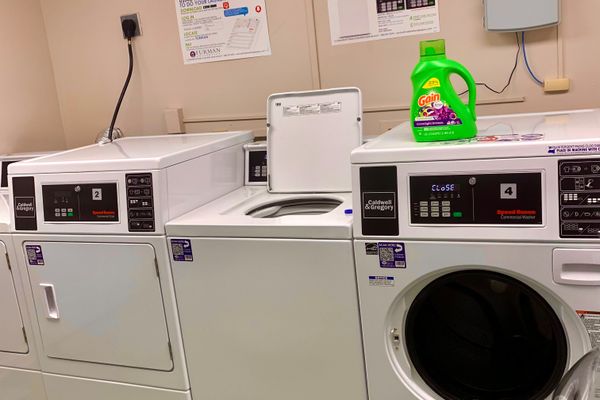At the beginning of the academic year, Furman launched a new laundry system that involves students paying for each washer and dryer load, replacing the free, unlimited use model previously implemented. The new governed-usage model utilizes an app called "Speed Queen" for students to pay $1 for every washer and dryer load, with each student given a $75 laundry allowance at the beginning of each semester.
The contract with Furman’s previous laundry vendor ended June 30, so when deciding on a new vendor and approach, Housing and Residence Life placed an importance on sustainability and an improved user experience while providing trustworthy machines. Ronald Thompson, Director of Housing and Residence Life, said that “providing Furman students with the most state of the art laundry equipment and technology was a critical component of making a decision when the recent laundry agreement was coming to an end.”
With this in mind, and after a competitive vendor bid process organized over the Spring, Furman selected appliance distributor Caldwell & Gregory's proposal for new Speed Queen washers and dryers and an upgraded machine monitoring system that students access through the Speed Queen app.
The previous “free running” model made it difficult for students to find available machines because students were more likely to wash smaller loads, increasing usage, thus decreasing machine availability. Smaller, more frequent loads also increased Furman's utility usage and consumption of natural resources.
With a focus on sustainability and increased machine availability, Thompson said their goal “was to provide the ability for students to get all their clothing cleaned and incentivize students to wash responsibly (full loads) so that more students get machines when they need them and we are not wasting resources unnecessarily.”
As college student housing and commercial laundry industries are increasingly moving away from the unlimited use model to promote sustainability, Furman chose this same route in order for students to be more intentional with laundry usage.
Thompson also cleared student confusion regarding the semester laundry allowance and how this budget was determined. “This allowance is not “real” money, rather a vehicle to provide students with nearly two and a half loads of laundry per week, or 37 loads of laundry per semester,” he said. “It is not money being taken from any account, budget, or student bill.” The allowance is contracted as a limit of use tied to the environmental impact of the machines. Any funds students add to their accounts in the app will be accounted as revenue for Caldwell & Gregory.
While there has been some confusion from students surrounding this governed usage system, senior Emma Carruth appreciates the new model. “The laundry system being connected to an app and paying was confusing at first but it ended up working out! The machines are much more efficient and clean,” said Carruth.
Other students, such as sophomore Molly McCutcheon, have concerns regarding the payment system. “I do like the idea of people doing less laundry,” she said, “but … having to pay for it makes it harder to stop the dryer cycles early, because I end up wasting half a cycle. … There are other changes that could be more helpful in getting us to live more sustainably!”
The new system will be in place until the Caldwell & Gregory contract .
